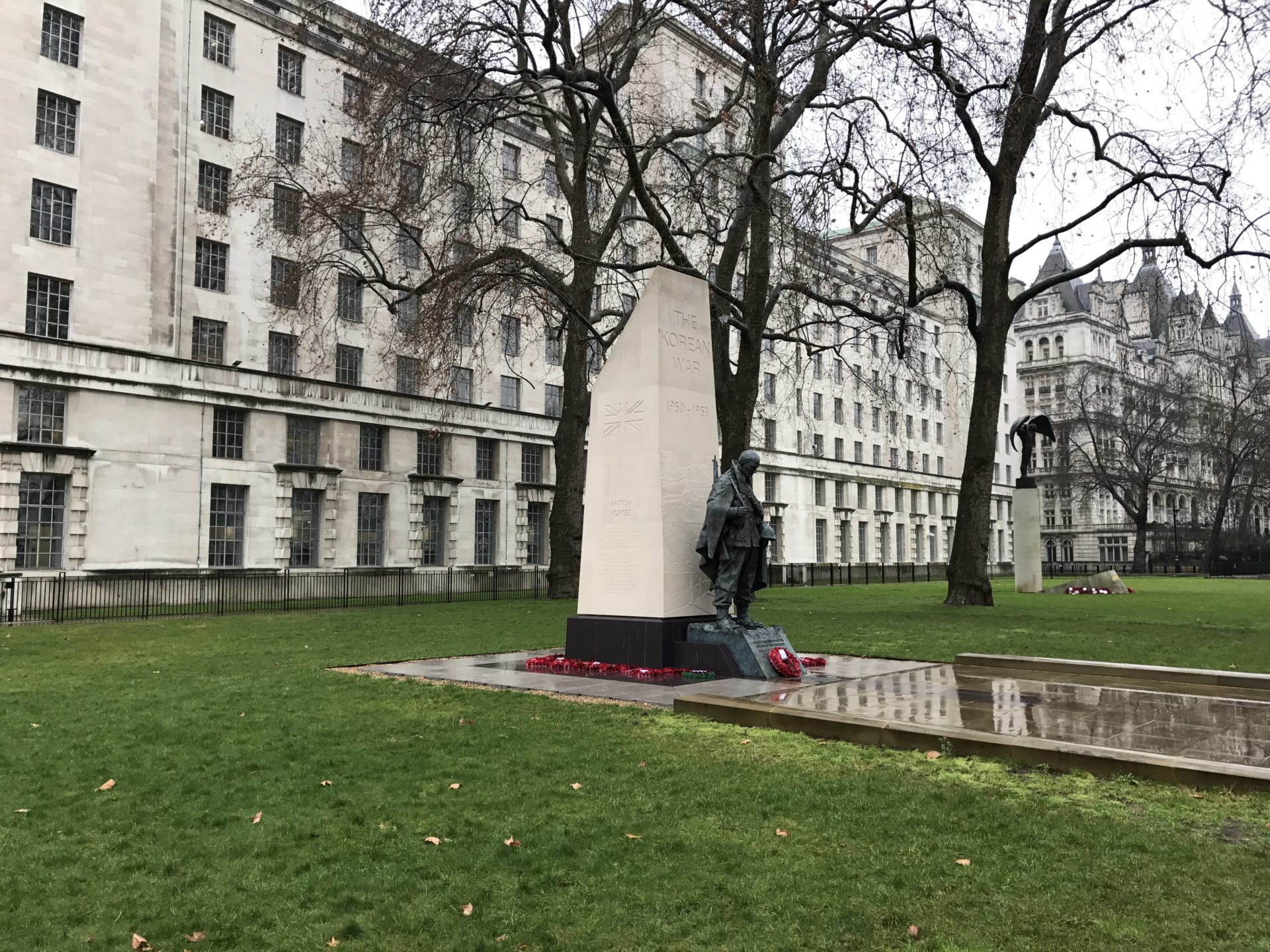UK London (10)
>> My name is George Reed. I'm a member of the British Korean War Veterans Association. I'm the secretary of the Hertfordshire branch. I went out to Korea with the war engineers, and it's a great shock. It was entirely different than being back in England, and I got posted up by the Imjin River [INAUDIBLE] engineer squadron, and we generally worked to do the reservicing roads and Korean work. The war had just finished when I had got out there, so the fighting had stopped. There was still plenty to do. I eventually became the squadron welder, and I built a 47-foot observation tower practically by myself, and then I got put into the intelligence section, was entirely different type of work altogether. Quite fun, I've done a few explosive jobs and blowing up. I've done some welding on the Teal Bridge, which would run ... crosses over the Imjin River. This was preparing for explosives in case the war started up again. I had plenty of work to do. I was very interested in most of it. I don't regret going out there. It was quite a different type of a culture, and, well, I bet we were. There was hardly any people at all because all the villages had been either destroyed, or they'd been moved back out of the danger area.
>> Did you know some of the comrades or people that went, fought in the British Armed Forces that fought but that didn't make it back? Did you know anyone?
>> Who fall down there?
>> Mm-hmm.
>> Yes. I was in the [INAUDIBLE] army before joining the regular army [INAUDIBLE] and there quite a few regular [INAUDIBLE] who fought out in the Korean War. They were very ... Was it posttraumatic stress? Two or three of them suffered very badly from that and what went on, but it wasn't recognized back in those days as such, so they were never treated, and they quite introverted to theirself. It affected them quite badly.
>> You were so young. How old were you?
>> How old was I when I went out? I was 21 when I went out to Korea. Being an engineer, it's a bit of employment. I was serving an apprenticeship for 5 years. I was deferred for joining the Army or doing national service for 2 years.
>> Explain that a little bit about the national service because it's a little different from other countries where everybody volunteered.
>> National service was 2 years, member, conscripted and then medical, and if they passed, they were sent out to different regiments, but I planned on being a military mind at that time. I signed on as a regular soldier, so it was all with national service. We don't have training with the national service, and it was all posted out with the national service with the different units around the world. I can't view it from a national service point of view because I wasn't a national serviceman.
>> But you served with them.
>> Yeah. Most of them were national service in those days.
>> How ... What do you think the proportion was?
>> In those days, it's over about 60 percent national serviceman in the British Army. I should say, not knowing these figures, but yeah. Looking back now, and what I've heard, I've met a few Korean people. I was in France 2 years ago, and in our hotel was a young Korean lady, and she thanked me for what we'd done out in Korea when we was fighting, so it ... quite lovely people there, very lovely people. Well, I think so. Yes, and I hope to be going out there in April of this year on a first visit for 62 years, all going well, hope to be there to see how the culture has changed, how the building changed because when I was there, Seoul was in a pretty bad state also the Gyeongbok Palace, which I remember visiting it if that's still there, but yes. I understand it's entirely different now, so going to compare the two different eras.
>> Well, I hope you enjoy the visit. I think you will.
>> Yeah, yeah.
>> I thank you.
